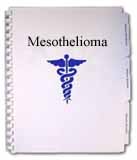Alimta
Alimta is now recognized as the most successful alternative to surgery for patients suffering from Malignant Pleural Mesothelioma (MPM). The cancer fighting drug is widely acknowledged for its ability to counter the enervating symptoms of Mesothelioma. It is the first chemotherapy drug to be approved by the US Food and Drug Administration (FDA).
Tested in clinical trials, Alimta (used simultaneously with the drug Cisplatin) brought about significant improvement in the quality of the lives of Mesothelioma patients - reducing the symptoms of the disease like shortness of breath and pain, even contributing to ones longevity by adding a number of months in the process.
How Does Alimta Work?
Alimta, like many other chemotherapy drugs, inhibits the process that triggers the cancer cells and causes them to multiply. However, the treatment is not suitable for all patients as is the case with treatments for other types of cancer. This chemotherapy drug is not right for those planning to become pregnant, since Alimta can be unsafe for the unborn baby. Further, those with kidney problems should also avoid taking Alimta.
The treatment with Alimta depends on a number of factors, particularly the stage of the disease and overall general health of the patient.
Preparations Before Taking Alimta
In order to benefit from the positive effects of Alimta, Malignant Pleural Mesothelioma patients need to take several precautionary measures. A week before the treatment starts, the patient has to take folic acid and a shot of vitamin B-12. Further, to counter the side effects such as skin rashes and others similar effects, an oral steroid is prescribed, which ones needs to take before, on and after the day one is treated with Alimta. Again, the patient cannot take any over the counter medications for relieving pain.
Alimta Treatment
The Mesothelioma patient has to undergo a treatment cycle as provided below:
Treatment with Alimta is a 21-day cycle. On the first day, the patient is given a dose of the drug (it takes some 10-15 minutes to be administered). A platinum agent Cisplatin (usually recommended by oncologist) is infused 30 minutes after Alimta is administered. This takes around two hours.
The next chemotherapy with Alimta is given after 21 days. The therapy is repeated on the 22nd day. The number of treatments and dosage to be taken is determined by the oncologist, who observes the patients progress with Alimta. Regular blood tests are conducted on the patient before and during Alimta treatment in order for the doctor to monitor the patient's progress.
Alimta Side Effects
Although some preparations are taken before the chemotherapy treatment so that the side effects can be avoided, still the patient might experience a number of side effects when treated with Alimta. The side effects of using the drug include sores in the mouth, skin rash, fever, anemia, vomiting, nausea, fatigue, constipation, as well as blood and bone marrow problems. As such, some of the side effects are mild or moderate and disappear within a few days; as regards the more serious side effects, they continue to create problems for a longer period but are indeed manageable. Thus, it can be safely said that Alimta is a relief for all those MPM patients who are struggling with their lives.
|

































